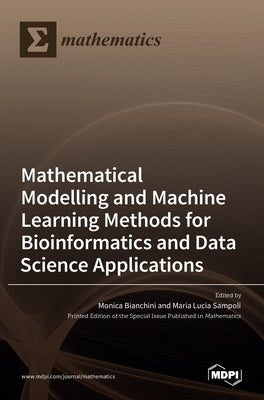Before you leave...
Take 20% off your first order
20% off
Enter the code below at checkout to get 20% off your first order
Discover summer reading lists for all ages & interests!
Find Your Next Read

Mathematical modeling is routinely used in physical and engineering sciences to help understand complex systems and optimize industrial processes. Mathematical modeling differs from Artificial Intelligence because it does not exclusively use the collected data to describe an industrial phenomenon or process, but it is based on fundamental laws of physics or engineering that lead to systems of equations able to represent all the variables that characterize the process. Conversely, Machine Learning methods require a large amount of data to find solutions, remaining detached from the problem that generated them and trying to infer the behavior of the object, material or process to be examined from observed samples.
Mathematics allows us to formulate complex models with effectiveness and creativity, describing nature and physics. Together with the potential of Artificial Intelligence and data collection techniques, a new way of dealing with practical problems is possible. The insertion of the equations deriving from the physical world in the data-driven models can in fact greatly enrich the information content of the sampled data, allowing to simulate very complex phenomena, with drastically reduced calculation times.
Combined approaches will constitute a breakthrough in cutting-edge applications, providing precise and reliable tools for the prediction of phenomena in biological macro/microsystems, for biotechnological applications and for medical diagnostics, particularly in the field of precision medicine.
Thanks for subscribing!
This email has been registered!
Take 20% off your first order
Enter the code below at checkout to get 20% off your first order